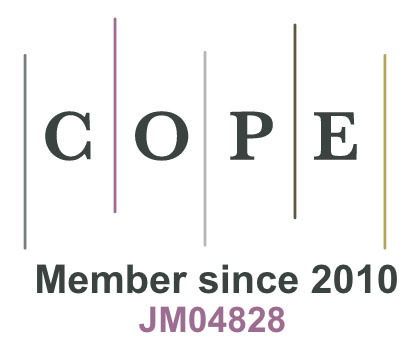Anti-Oppressive Nursing Education
Our current featured article is titled “Developing a Theory of Norm-Criticism in Nursing Education” authored by Caitlin M. Nye, MSN; Ellinor Tengelin, PhD; and Darryl Somayaji, PhD. While it is featured, it is available for free download from the ANS website! Here is a message that Caitlin Nye has shared about the background of this work:
This paper evolved out of an assignment for my advanced theory development course in my doctoral program. Its application of norm-criticism to nursing education praxis builds on the foundations of both emancipatory nursing (Kagan et al., 2014; Velasco & Reed, 2022; Walter, 2017) and anti-oppressive education (Kumashiro, 2000, 2002). The process of expanding on and crafting this paper has had a profound influence on the development of my doctoral research on the knowledge, beliefs, and experiences of undergraduate nursing faculty with teaching lesbian, gay, bisexual, transgender and queer (LGBTQ+) health. Even beyond this benefit, however, this paper is the exemplar I go to when talking to other newer nursing scholars who might be hesitant or intimidated about writing for publication.
One of my co-authors, Dr. Darryl Somayaji, was the professor for the course for which I wrote the original paper. In that class, I gave a presentation in which I first showed how norms, power, and othering function in dynamic, mutually reinforcing, and interlocking concert behind the scenes of nursing education. I emphasized how challenging—and important—it is to uncover the “clockworks” behind nursing education praxis to resist their contributions to discrimination, health and educational disparities, and real harm to both students and patients. After the course was over for the semester, Darryl told me the paper had potential as a future manuscript and that I should pursue expansion of the work and publication. I had heard the adage that “you should come out of each class you take with a paper for publication” but didn’t really think that applied to me! Nonetheless, we began talking about it, and I decided to give it a try.
The other thing I did that contributed to the process of developing this paper into a manuscript was to reach out to Dr. Ellinor Tengelin, a Swedish public health scholar whose 2019 doctoral dissertation (and associated published works) on norm-criticism and nursing education was the other key scholarly work that I used to first develop my original paper (Tengelin, Bülow, et al., 2019; Tengelin, Cliffordson, et al., 2019; Tengelin, Dahlborg, et al., 2019; Tengelin et al., 2020; Tengelin & Dahlborg-Lyckhage, 2017). Confession: I looked Ellinor up on Twitter! I reached out to her there and told her how much I admired her scholarship and about its influence on my own nascent theoretical thinking for my own research. We began talking and the next thing I knew—she had agreed to work with me and with Dr. Somayaji on this theory development paper. Scheduling writing team Zoom meetings that worked both for Eastern Standard Time and Central European Time was a bit tricky, but the lively and supportive discussions we had about the ideas and applications in our paper have been a highlight of my PhD program so far.
I will continue to develop and test the theory of norm-criticism for nursing education as I progress through my dissertation research and beyond. However, the reasons I point to this paper and the process of developing it as an exemplar for newer nursing scholars are:
- If your professor tells you your paper is good and should be published—believe them! (Conversely: professors, if you have a student whose work is innovative and exciting and you think it could be developed into a publishable manuscript, tell them! It was such a boost!).
- It was both theoretically and pragmatically useful to return to ideas that were just starting to develop to expand and deepen my approach, and I now understand that adage about finishing each class with a potential manuscript a lot better. Though my dissertation will not specifically test the theory, it will certainly be shaped by it.
- If there is a scholar whose work has moved you, influenced your thinking, or given you exciting ideas for your own research, it never hurts to reach out and tell them so! I have continued to build relationships this way and it has brought me together with some wonderful friends, colleagues, and collaborators.
As an educator, I am grateful to have this exemplar to share with my students and mentees to encourage them to pursue the opportunity to expand on and share their ideas through publication; as a doctoral student myself, it has boosted my confidence to pursue further opportunities for writing projects and publications (Nye et al., 2022; Nye & Dillard-Wright, 2023).
References
Kagan, P. N., Smith, M. C., & Chinn, P. L. (Eds.). (2014). Philosophies and practices of emancipatory nursing: Social justice as praxis. Routledge.
Kumashiro, K. K. (2000). Toward a Theory of Anti-Oppressive Education. Review of Educational Research, 70(1), 25–53. https://doi.org/10.3102/00346543070001025
Kumashiro, K. K. (2002). Troubling education: Queer activism and antioppressive pedagogy. RoutledgeFalmer.
Nye, C. M., Canales, M. K., & Somayaji, D. (2022). Exposing othering in nursing education praxis. Nursing Inquiry. https://doi.org/10.1111/nin.12539
Nye, C. M., & Dillard-Wright, J. (2023). Queering the classroom: Teaching nurses against oppression. Journal of Nursing Education, 62(4), 193–198. https://doi.org/10.3928/01484834-20230208-02
Tengelin, E., Bülow, P. H., Berndtsson, I., & Dahlborg Lyckhage, E. (2019). Norm-critical potential in undergraduate nursing education curricula: A document analysis. Advances in Nursing Science, 42(2), E24–E37. https://doi.org/10.1097/ANS.0000000000000228
Tengelin, E., Cliffordson, C., Dahlborg, E., & Berndtsson, I. (2019). Constructing the norm-critical awareness scale: A scale for use in educational contexts promoting awareness of prejudice, discrimination, and marginalisation. Equality, Diversity and Inclusion: An International Journal, 38(6), 652–667. https://doi.org/10.1108/EDI-10-2017-0222
Tengelin, E., Dahlborg, E., Berndtsson, I., & Bülow, P. H. (2020). From political correctness to reflexivity: A norm‐critical perspective on nursing education. Nursing Inquiry, 27(3). https://doi.org/10.1111/nin.12344
Tengelin, E., Dahlborg, E., Berndtsson, I., & Martinsson, L. (2019). Becoming aware of blind spots—Norm-critical perspectives on healthcare education. Jönköping University, School of Health and Welfare.
Tengelin, E., & Dahlborg-Lyckhage, E. (2017). Discourses with potential to disrupt traditional nursing education: Nursing teachers’ talk about norm-critical competence. Nursing Inquiry, 24(1). https://doi.org/10.1111/nin.12166
Velasco, R. A. F., & Reed, S. M. (2022). Nursing, social justice, and health inequities: A critical analysis of the theory of emancipatory nursing praxis. Advances in Nursing Science, Publish Ahead of Print. https://doi.org/10.1097/ANS.0000000000000445
Walter, R. R. (2017). Emancipatory nursing praxis: A theory of social justice in nursing. Advances in Nursing Science, 40(3), 225–243. https://doi.org/10.1097/ANS.0000000000000157






Trackbacks & Pingbacks